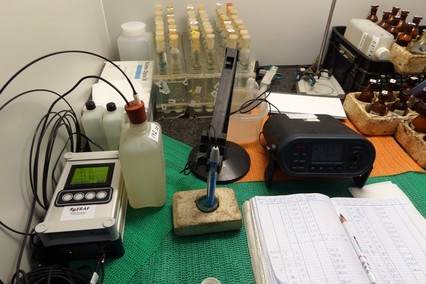Description
Marine biologists study and analyze ocean ecology and aquatic life. They study plants and animals that live in sea water, and their relationships with each other and their environment. Marine biology includes everything from small organisms such as plankton right through the very large such as whales. Marine biologists may be employed by government agencies, private companies and industry organizations, and the jobs they do may differ according to where they work. Some biologists may analyze marine water samples for contaminants. Others may use marine plants to create products for use. Still other biologists may work for zoos or aquariums, monitoring marine animals and conducting studies.
Tasks:
- Observe marine plants and animals in their natural environment
- Collect and analyze biological data, identify animal species and communicate findings to the public
- Study the impact of pollution on marine life
- Identify, classify and preserve different types of marine life
- Estimate population growth and life expectancy
- Plan and run field studies and experiments
- Use computer modelling techniques to predict future events in the marine environment
- Report the results of their studies in papers for science journals and in commercial reports
- May also create directives, such as aquatic conservation efforts, and implement action with the Environmental Protection Agency and other government agencies
- May also focus on educating the public on marine conservation issues
Key skills for marine biologist:
- Knowledge of marine science, biology, and chemistry
- Research skills and good problem solving skills
- Maths and computer skills
- Writing skills, for writing reports and for publications
- Inquiring mind
- Planning and organising skills
Average salary (2013):
The United Kingdom: £26,000 per year
The United States of America: $75,600 per year
Australia: AU$49,000 – AU$68,000 per year
Qualifications and training required:
Marine biologists are required to have at least a bachelor's degree in marine biology, marine science or a closely-related field. Additionally, bachelor's degree programs in marine biology often include courses in biostatistics that uses concepts from statistics to measure, estimate and analyze biological data. Other employers may prefer marine biologist with a Masters or PhD majoring in marine biology, marine ecology, marine conservation, zoology or a related science. These programs allow students to conduct research and gain specialized expertise in topics ranging from marine ecology to marine mammal physiology. Individual research projects, a thesis or dissertation on a topic in marine biology may be required by some programs.
Useful experience for marine biologists includes: technician placements during summer holidays, volunteer work in ecology and conservation, diving experience, and work with plants and animals.


